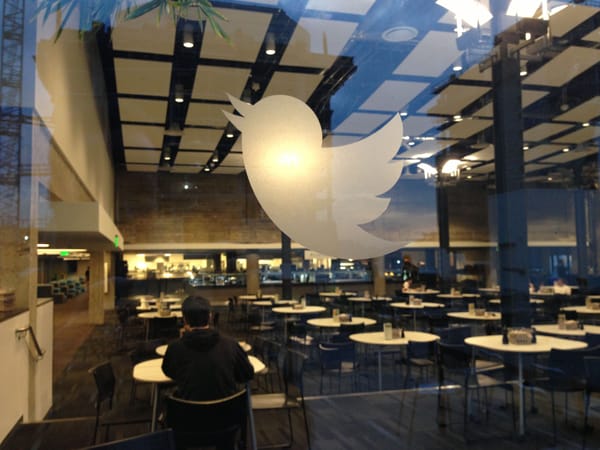In the name of rooting out “disinformation,” social-media platforms are increasingly resorting to censorship, often targeting legitimate news and opinion: from suppression of the New York Post’s 2020 Hunter Biden reporting, which turned out to be accurate, to restriction of the increasingly plausible lab-leak theory of Covid’s origins. Yet efforts to combat Big Tech censorship invariably run up against a seemingly insuperable wall: As private entities, we are told, the Silicon Valley giants aren’t required to abide by the First Amendment’s free-speech protections.
Private firms are thus permitted to remove people and ideas from social-media platforms without constitutional consequence. In putting forth this argument, defenders of the Big Tech status quo are, if unwittingly, echoing claims made generations ago by legal apologists for Jim Crow. Those claims ultimately failed, and Jim Crow collapsed. For those who find their ideas segregated against on the internet, there is precedent for bringing the Constitution to bear on the decisions of private companies.
After the passage of the 14th Amendment in the wake of the Civil War, private entities like restaurants and hotels continued to discriminate against black clients. The problem was a constitutional impasse: Courts narrowly interpreted the equal-protection clause of the 14th Amendment to apply only to state action. Progressives, however, argued that the definition of “state action” should be broadened, since all action was, in effect, state action. A democracy and a thriving civil society couldn’t be built so long as private actors could continue to racially discriminate.
This argument gained traction in the courts, as it became increasingly clear that the denial of fundamental rights, even if by a private entity, could result in hollowing out democracy. Whether it was the enforcement of restrictive covenants that prohibited African-Americans from buying real estate, or hospitality businesses that prohibited them from entering, it became clear that state action was never entirely separate from private action, even if it were by omission.
“There is precedent for bringing the Constitution to bear on the decisions of private companies.”
To make this case, progressives argued that absolutist notions of private property and the wealth disparities they created hampered racial equality. And they were right. Now, however, as censorship by private entities continues and even escalates unabated against consumers who can’t battle on equal footing, where are the advocates for free speech? Where are the accusations of inequality of wealth and power?
Censorship and racial discrimination are two sides of the same problem. The private companies that collectively form the internet engage in censorship, using the state-action doctrine and the 1996 Communications Decency Act to keep the First Amendment at bay, ironically relying upon the same ideological justifications that preserved Jim Crow. We are told that the principles of private property and liberty of contract should prevail in this situation. The segregationist defended discrimination on the basis of private property and free-market principles, too. It was and continues to be true that a democracy can’t survive if some of its citizenry are segregated and discriminated against. And in time, we came to realize this injustice with regard to discrimination and segregation on the basis of race.
Now, however, private internet companies that control the internet limit the ability of individuals to disseminate their views, search relevant information, or engage in meaningful interactions in an increasingly important forum of expression and association that is necessary for a democracy to function. Just as racial discrimination was an affront to democracy, so, too, is censorship, and no amount of justification based in private property and free-market principles can overcome it. The issue is a matter of freedom.
While we preserve one aspect of our freedom with liberty of contract by picking and choosing our social-media platforms and our search engines, we nonetheless exercise very little control, because the terms of service are constructed to benefit the private companies, and not us.
We assume that our consent in liberty of contract ensures our liberty, that by accepting the terms of service, we are put in control. But the exact opposite is true. According to this market model of regulation, an individual’s interest is preserved by the consent upon which the contract is premised; yet the consent model is far from optimal when dealing with behemoth companies with a powerful advantage over the consumer.
Progressives are silent. Where their predecessors used to advocate for the courts to intervene to protect against discrimination on the basis of race, today’s liberals laud the prerogatives of private companies to do what they wish with their platforms, advocating for the market as the only solution.
The problem is that censorship, like racial discrimination, involves a substantive right of constitutional significance, and when private actors usurp these rights, democracy suffers. While a traditional free-market approach suggests that the introduction of competitors or alternatives would solve the problem for consumers, the ownership dominance of a handful of private companies makes it exceedingly difficult for potential competitors to step in and offer alternatives, especially when there is coordination and cooperation among the incumbents to limit the ideological scope of content and engagement on their “property.”
Here it is important to emphasize the connection between economic power and free-speech rights, which mirrors the reasons why racial segregation persisted. Just as racial discrimination was justified as a private-property prerogative, it was also an indication of wealth inequality, where the powerful controlled access and participation in society. Similarly, the inequality of wealth between consumers and private internet companies that control access, content, and communication constraints free-speech rights.
So why the progressive silence? Perhaps it’s because the powerful propertied interests of the internet are doing the left’s political bidding, just as the powerful propertied interests in the last century were doing the bidding of segregationists in the South.
